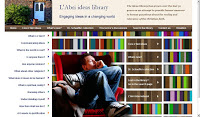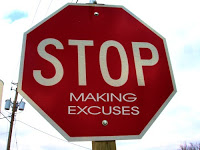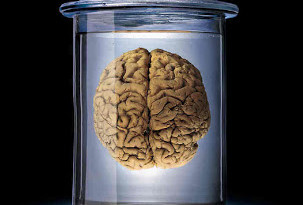 I’m always excited to see Christians engaging with contemporary issues, so I was very pleased to see that Evangelical Alliance Wales are launching the Cymru Institute for Contemporary Christianity (CICC for short – “Cymru” means “Wales” in Welsh, by the way).
I’m always excited to see Christians engaging with contemporary issues, so I was very pleased to see that Evangelical Alliance Wales are launching the Cymru Institute for Contemporary Christianity (CICC for short – “Cymru” means “Wales” in Welsh, by the way).
Kicking off CICC, a series of events was held across Wales, including a Question Time event here in Cardiff. Chaired by Roy Jenkins, presenter of BBC Radio Wales’ All Things Considered, it brought together a collection of sharp minds onto a panel to answer the tough questions facing Christians in today’s society.
The speakers were: Dan Boucher, director of parliamentary affairs for
CARE; Joel Edwards, international director for
Micah Challenge and former head of the
Evangelical Alliance; Michael Green, evangelist and former advisor to the Archbishop of Canterbury; Elaine Storkey, feminist theologian and head of
Tearfund; and David Williamson, political journalist on the
Western Mail.
Questions included such thorny subjects as:
- “Should Terry Pratchett have the right to end his own life with dignity?”
- “Is Christianity being bullyingly marginalized in the UK?”
- “Is torture ever justified in the fight against terror?”
- “Where was God when the earthquake happened in Haiti?”
The panellists all brought in interesting perspectives on the different questions. I found the answers to the question about whether Christianity is marginalised to be particularly interesting. Dave Williamson and Joel Edwards both made the point that we’re moving to a post-Christendom situation where Christianity’s traditional privileges are being removed, with Joel Edwards being fairly upbeat about the level of Christian involvement on a more level playing field.
On the other hand, Dan Boucher argued that we’re not moving to a level playing field, but that all faiths are being pushed out of the public sphere, while Michael Green gave examples of situations where Christians do indeed seem to have come in for particular difficulties, such as a nun whose distinctively Christian dress was deemed not acceptable in a hospital, though it had no problems with Muslims wearing the veil. Between them, the panellists gave a broad and nuanced view of the challenges and opportunities facing Christians in the public sphere.
But if there was a weakness to the event, it was that the panellists didn’t disagree enough! I think their outlooks were not wildly different, and it would have been much more interesting to have, say, an ardent socialist sitting alongside a fire-breathing conservative. One of the strengths of the British political scene is that Christians aren’t associated with any one particular party, so it shouldn’t be too difficult to find people willing to disagree with each other!
I think the type of questions asked also lent themselves to consensus rather than conflict. They were often at a fairly general level, rather than relating to specific policies, legislation or situations. If questions were more specific, this would probably bring out more disagreement; it’s relatively easy to agree on principles, but much harder to agree exactly how to put them into practice! We need as Christians to get down to the fine details, to show that our faith is relevant not just in theory, but actually in practice too.
On this note, I was disappointed that the question of “Who as a Christian should I vote for in the general election?” wasn’t discussed. (But then, I didn’t send in any questions, so perhaps I only have myself to blame!) The closest we got was the question “should preachers should tell their congregations who to vote for?”, which the panel rightly answered with an unanimous “no”.
But a discussion-based event such as this one is exactly the kind of place where this question ought to be discussed. No, there isn’t a neat and clear answer, and there shouldn’t be any room for partisanship – which is precisely why Christians need to discuss this question openly and thoughtfully.
Overall it was tremendous to see Christians gathered to discuss public issues, and I think that CICC’s vision and objectives are great – I’ll be eagerly watching to see how it develops. I’m also glad that there were similar events in Colwyn Bay and Swansea, making it more of a genuinely all-Wales initiative. As with the newly launched National Theatre of Wales touring the country, it’s nice to see increasing recognition that there’s more to Wales than just Cardiff!
 I’m always excited to see Christians engaging with contemporary issues, so I was very pleased to see that Evangelical Alliance Wales are launching the Cymru Institute for Contemporary Christianity (CICC for short – “Cymru” means “Wales” in Welsh, by the way).
I’m always excited to see Christians engaging with contemporary issues, so I was very pleased to see that Evangelical Alliance Wales are launching the Cymru Institute for Contemporary Christianity (CICC for short – “Cymru” means “Wales” in Welsh, by the way).
















